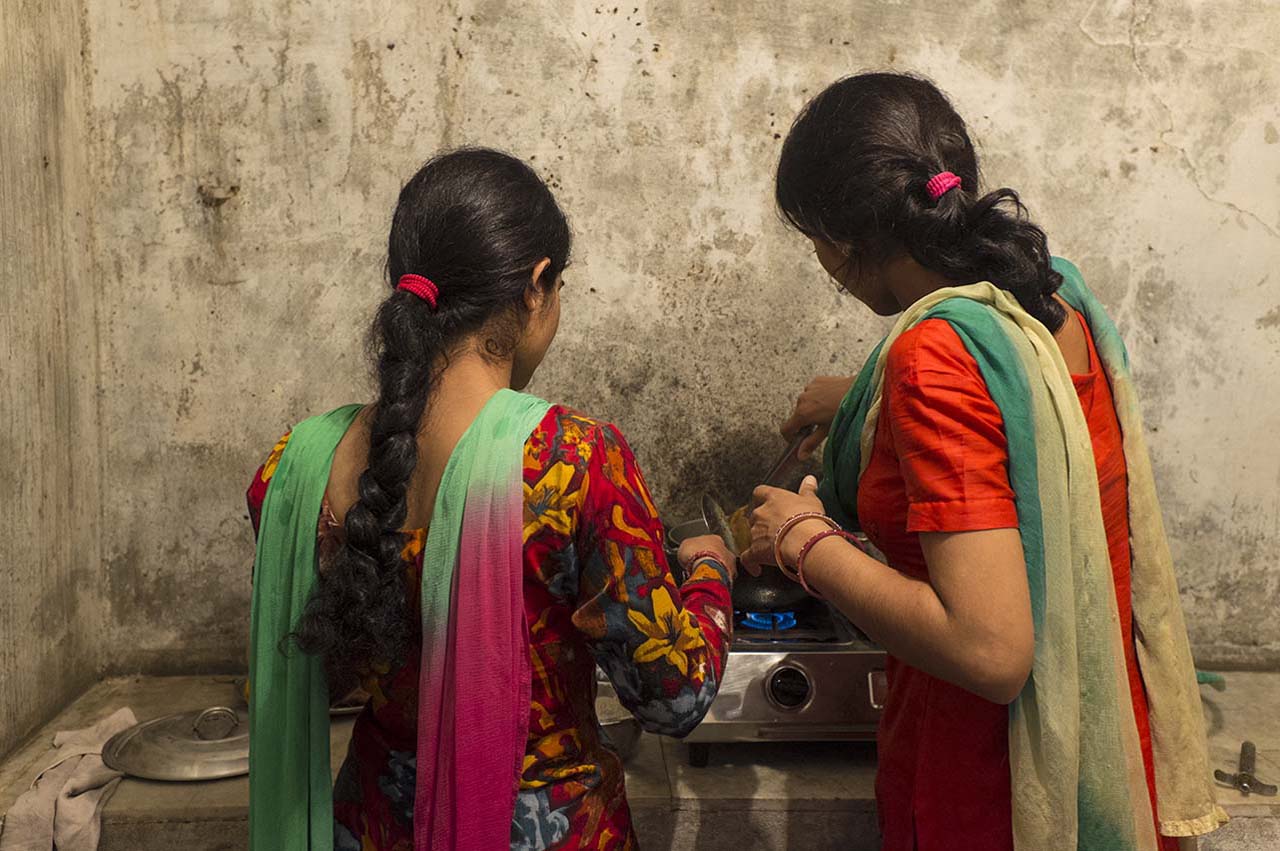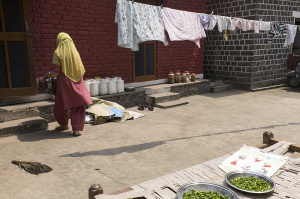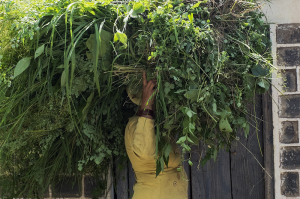BELOW THE POVERTY LINE AND ABOVE THE TREES
I landed in New Delhi on August 16th, ready to spend the following month at RUCHI, an NGO in the foothills of the Himalayas. Ready, excited, but also scared!
I would be there only for one month, such a short time to be able to fit in and actually help. But for me it was my first contact with the volunteering world, which inspired within me so much respect. How could I possibly help? Without being a doctor, a psychologist or an environmental expert, could I do something useful or would I be yet another burden? These questions raced through my head as the train took me the 270 kilometers north from New Delhi to Kalka.
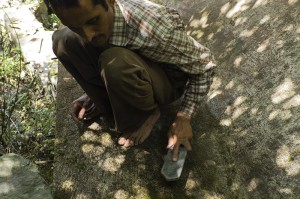 Repairing and cleaning the water tanks
Repairing and cleaning the water tanks
One train, two bus rides, and seven hours later, I arrived at my destination. I was feeling exhausted and a bit overwhelmed: traveling through the inland you don’t go unnoticed if you are a white girl. But I had finally reached The Rural Centre for Human Interests—RUCHI, a politically unaffiliated non-profit which has provided assistance to underprivileged local rural people since its founding in 1980. It is located in the mountainous state of Himachal Pradesh, outside the small village of Bandh, in Solan district, where the effects of economic backwardness; the restricted access of villages to development; and the growing social problems of alcoholism, exploitation and neglect of women are all painfully present.
One of RUCHI’s current priorities is the reduction of poverty caused by environmental degradation and the lack of access to clean, safe water. They work to protect springs, build household rainwater tanks and toilets, and provide education on hygiene.
During my one month stay, I took part in a project focused on water conservation. We emptied and cleaned two water tanks that stock 50,000 liters of rainwater each. During monsoon season (July and August), silt and other materials accumulate in the tanks, slowing and damaging their function. I assisted the team in repairing these tanks, putting up gutters and pipes, and renovating the structure for the effective reserve of water.
Twenty minutes away from RUCHI, there is a path uphill. One day I started walking through the undergrowth, in broad daylight and sweltering heat owing to the typical humid weather of monsoon season. I would have never imagined that at the end of that very narrow steep path I would find Shyamagat, one of the many communities helped by RUCHI. In essence, it is a tiny village, quite isolated in the mountains, consisting of 14 families that belong to the lowest caste of India (the “scheduled caste” or “Dalit”, which represents 25% of people of Himachal Pradesh state). All 65 villagers are BPL: below the poverty line, as defined by the Indian government, which means they earn less than $1 per day. They have an agriculturally based economy, which some of the men supplement with odd jobs like contract work on daily wages.
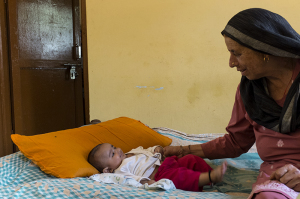 Inside of one of the houses in the community of Shyamagat
Inside of one of the houses in the community of Shyamagat
The women and children of Shyamagat used to spend a lot of time collecting water for drinking and cooking. The women look after the children, collect water, feed the animals, do the cooking and washing and work in the fields, with very little time left over to improve their lives or further their education in any way. Men, women, and children all have a lot of health problems due to the lack of basic toilet facilities and clean water. RUCHI’s work in Shyamagat has changed their lives: they now have toilets, access to potable water, and wash facilities. Meeting them, talking to the women, entering their houses and becoming aware of their extremely limited resources has been one of the hardest and most beautiful experiences I have ever had.
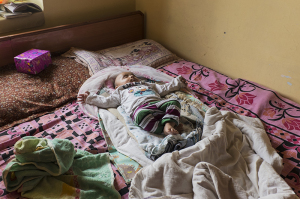 One of the babies of Shyamagat community
One of the babies of Shyamagat community
As I was leaving Shyamagat, one of the women shouted at me, “come back”. It’s etched on my memory: the image of her, her smile and how she looked. And yes, I will go back someday. I met incredible people and I really enjoyed helping. But above all, I left my reality for a month to be caught up in another one—one that was both thrilling and bittersweet. It was amazing.
For further information on RUCHI: http://www.ruchin.org/
Sol Salama
External Collaborator to The Worldfolio
Here’s the link in which you will find the article, already published: http://www.theworldfolio.com/blog/below-the-poverty-line-and-above-the-trees/

